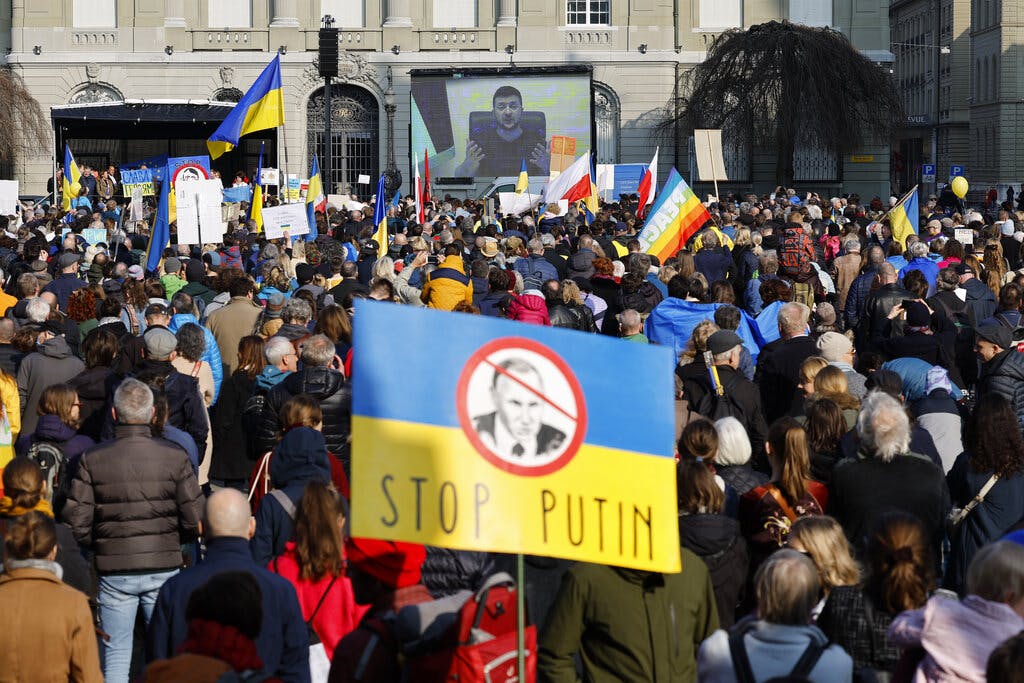Russia War Campaign Being Called a Failure
‘Gaining control of the air was one of Russia’s principal objectives for the opening days of the conflict and their continued failure to do so has significantly blunted their operational progress.’

ATHENS — Vladimir Putin might have thought that crushing Ukraine would be a slam dunk, but circumstances appear to have schooled him otherwise. Despite inflicting destruction on key Ukrainian cities and fanning fear of more violence in virtually all of them, Russia’s campaign to clobber Ukraine, at least in its initial phase, is officially a flop.
Ukraine’s military reported that as of March 20, more than 14,700 Russian troops have been killed since the start of the war. It says it has destroyed 1,487 armored personnel carriers, 947 vehicles, 476 tanks, 230 artillery systems, 60 fuel tanks, 74 multiple launch rocket systems, 118 helicopters, 96 aircraft, 44 anti-aircraft warfare systems, 21 unmanned aerial vehicles, and three boats.
While not addressing the Russian strongman directly, the American secretary of defense, Lloyd Austin, said yesterday that “the smartest thing that he could do right now is to make a decision to end this conflict.”
Late Saturday night the British Ministry of Defense tweeted: “Gaining control of the air was one of Russia’s principal objectives for the opening days of the conflict and their continued failure to do so has significantly blunted their operational progress.” That assessment holds even as Russian forces “continue to encircle cities across eastern Ukraine.”
This mirrors the verdict of a prominent Washington think tank, the Institute for the Study of War, which declared yesterday that Ukrainian forces “have defeated the initial Russian campaign of this war.”
The ISW assesses that Moscow’s campaign “aimed to conduct airborne and mechanized operations to seize Kyiv, Kharkiv, Odessa, and other major Ukrainian cities to force a change of government in Ukraine,” notes that “that campaign has culminated” and that Russian forces continue “to make limited advances in some parts of the theater but are very unlikely to be able to seize their objectives in this way.”
Mr. Austin, speaking at a press conference in Bulgaria with the Bulgarian prime minister, Kiril Petkov, said that the Russians have “stalled on a number of fronts.” In response to a question from the AP’s Bob Burns about whether Moscow would try to seize Odessa, Mr. Austin replied that while he could “not speak to Russian planning,” he also said that “we don’t see indications of that right now.”
Amid blanket media coverage and with global social media on overdrive, the Russians’ perhaps reflexive shift to what Britain’s defense ministry has called a war of attrition is both obvious and increasingly ugly. “I would also say that they’ve used some brutal, savage techniques in terms of the way that they’ve been targeting civilian population centers,” Mr. Austin said in that press conference. “And again, we would hope that they would choose a different path.”
For the time being however, they are not. Today AP reported that Ukrainian authorities said the Russian military bombed an art school where about 400 people had taken refuge in Mariupol — the port city where President Zelensky said the unrelenting siege by Russian troops would go down in history for what he said were war crimes. Local authorities said the school’s building was destroyed and people could remain under the rubble but there was no immediate word on casualties.
In other developments, at least 40 of Ukraine’s marines were killed in a Russian airstrike on barracks at Mykolaiv on Saturday, and several airstrikes were reported in the strategic southern city. Russia claimed to have fired a Kinzhal missile capable of hypersonic speed in an attack on a military fuel depot near the settlement of Kostyantynivka in the Mykolaiv region — the second day in a row that Moscow has fired this kind of missile in Ukraine, according to Le Point. The weapon is said to have been used in a Saturday attack on an ammunition storage site in western Ukraine.
That French news website also reports that President Zelesnky, who is Jewish, was to address the Israeli Knesset at Jerusalem today via a Zoom call that Haaretz reports will also be broadcast on a screen set up on the plaza of the Habima theater in downtown Tel Aviv.
More than a million citizens of Israel come from the former Soviet Union, of which Ukraine was an integral part. Israel’s interior minister, Ayelet Shaked, said that since the start of fighting February 24, more than 12,600 Ukrainians have arrived in Israel, the Times of Israel reports.

